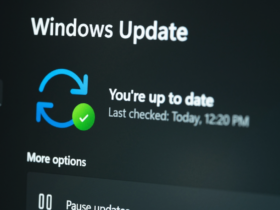In today’s digital world, having a good online reputation is key for both people and companies. Smear campaigns can really hurt your reputation, slowing down growth. To fix reputation damage and keep your online image safe, you need solid plans. These include legal actions, PR efforts, being proactive with your reputation, and having a crisis plan.
This article dives into the best ways to regain trust and safeguard your brand’s image after a malicious attack.
Key Takeaways
- Online reputation is crucial for individuals and businesses in the digital age.
- Smear campaigns can significantly damage reputation, affecting personal and professional growth.
- Effective strategies are necessary to address and repair reputation damage, including legal, PR, and proactive management approaches.
- Comprehensive solutions are available to rebuild trust and protect brand image after online attacks.
- Monitoring and managing online presence is essential for maintaining a positive digital reputation.
Understanding the Impact of Online Smear Campaigns
In today’s digital world, online smear campaigns are a big threat. They can harm personal and business reputations. These attacks include negative reviews, false articles, and fake news.
Such content spreads fast on social media. It can cause big problems like losing customers and money troubles. It also makes it hard to find and keep good employees.
Types of Reputation Attacks
Online smear campaigns use many tactics. Here are some:
- Negative reviews on platforms like Google, Yelp, or social media
- Defamatory articles or blog posts spreading false information
- Fake news stories and rumors circulated on social media
- Manipulated or doctored images and videos intended to discredit
How Negative Content Affects Personal and Business Growth
These attacks can cause a lot of harm. Negative content can erode trust, leading to lost customers, missed opportunities, and financial setbacks. For people, it can hurt their job chances. For businesses, it can lead to less money and trouble finding good employees.
The Role of Social Media in Reputation Damage
Social media can make reputation damage worse. Online reputation management gets harder because of it. Viral posts and hashtags can quickly turn a small issue into a big problem.
| Platform | Potential Risks | Mitigation Strategies |
|---|---|---|
| Negative reviews, fake profiles, smear campaigns | Regularly monitor mentions, engage with customers, respond to valid concerns | |
| Viral hashtags, trolling, coordinated attacks | Leverage social listening tools, proactively address emerging issues | |
| Negative search results, review sites, news articles | Optimize content, suppress negative listings, encourage positive reviews |
It’s important to know about reputation attacks and their effects. This knowledge helps in fighting smear campaigns and managing online reputation.
Legal and PR Response Strategies
When a smear campaign hits, having a solid legal and PR plan is key. This means getting legal advice from experts in reputation management. It also means making smart public statements and working with PR firms for crisis communication.
The main steps in a good legal and PR plan are:
- Get lawyers who know how to handle reputation issues. They’ll figure out the risks and plan a strategy.
- Look at how the bad news might affect your business. This includes your finances and how people see you.
- Make a clear plan for what to say to fix the situation and improve your image.
- Work with a PR agency to handle the media, social media, and public talks during the crisis.
- Keep an eye on how well your plan is working. Change it if needed to lessen the damage.
The Center for Integral Wisdom shows how to handle a smear campaign well. They used legal advice and a PR team to fix their image. This shows how important a good plan is for keeping your reputation safe.
“Reputation is the cornerstone of success in today’s digital landscape. Businesses that prioritize reputation management are better equipped to withstand and recover from reputational crises.”
Keeping a good online image, dealing with bad reviews, and using PR can help manage your reputation. A complete approach to reputation management protects your most valuable asset – your reputation.
Reputation Damage and Solutions
In today’s digital world, it’s key to manage your brand’s image well. Use reputation management techniques to keep your brand safe. Watch online platforms and quickly respond to bad content. This way, you can make sure good stories about your brand get seen more.
Proactive Reputation Management Techniques
Start by being proactive with your reputation. Keep an eye on your online presence and talk to customers. Share true, positive stories on your digital channels. Also, improve your social media, engage with reviews, and tackle false info to build a strong reputation.
Content Management and Suppression Methods
When faced with bad content, use smart content management and suppression. This might mean SEO, creating good content, and using platforms to hide bad results. By making and sharing positive content, you can suppress negative content and grow your online presence.
Building Positive Online Presence
Creating a strong, positive online image is vital. Engage with your audience, solve their problems, and show off your brand’s good sides. Use reviews and testimonials to boost your reputation and sales. Keep your online presence consistent, real, and ready to respond to build and protect your brand.
“Reputation is an invaluable asset that takes years to build but can be destroyed in an instant. Proactive reputation management is no longer an option, but a necessity for businesses in the digital age.”
Having a solid reputation management plan can bring many benefits. You’ll see better sales, more revenue, higher search rankings, and lower costs to get new customers. By focusing on proactive reputation management, you can overcome digital challenges and build a strong, trusted brand that your audience will love.
Creating an Effective Crisis Communication Plan
In today’s fast-changing digital world, crisis communication is key to any reputation repair strategy. When a crisis hits, whether it’s a natural disaster, cyber-attack, or PR issue, quick, clear, and effective responses are vital.
A solid crisis communication plan is essential for managing reputation damage. It should have set response plans, choose who speaks for the company, and outline strategies for various crises. It’s crucial to send out messages quickly and consistently, as 80% of customers expect a response within 24 hours.
Being open and showing empathy is important in crisis communication. 70% of customers trust an organization that owns up to mistakes and talks openly. By facing issues directly and showing real care for stakeholders, companies can lessen the damage to their reputation.
It’s also important to hold regular crisis drills and review plans after a crisis. 65% of crises happen outside regular hours, and 85% of organizations see benefits from reviewing and updating their plans. These steps help ensure a quick and effective response, minimizing further harm.
“In a crisis, be aware of the danger – but recognize the opportunity.” – John F. Kennedy
By actively creating and updating a detailed crisis communication plan, companies can face tough times with confidence. This strengthens their brand advocacy and reputation over time.
Employee Support and Internal Communication Strategies
When a reputation crisis hits, supporting employees and keeping communication strong is key. By offering crisis support, giving staff clear talking points, and building trust, teams can stay united. This helps them face the challenges together.
Managing Team Morale During Reputation Crisis
Low morale can hurt a company a lot. It leads to more absences, lower productivity, and less profit. To keep spirits high, it’s important to check in regularly, offer mental health help, and be open about the situation.
Training Staff for Public Response
When a crisis strikes, employees are the ones who speak for the company. Training them well on how to talk, respond, and serve customers is crucial. Giving them the right tools helps them respond professionally. This helps protect the company’s image.
Building Internal Trust and Solidarity
Creating a culture of internal communication and employee support during crisis is essential. Keeping open talks with staff and board members builds trust. This trust leads to better teamwork, higher morale, and a stronger reputation.
“Effective internal communication is not just about sharing information, but about building a sense of community and shared purpose during times of crisis. By prioritizing employee engagement and support, organizations can emerge stronger and more resilient.”
Conclusion
Fixing damage from online smear campaigns needs a detailed plan. It’s important to know how negative content affects us. Then, we can use legal and PR strategies to fight back.
Creating a good crisis communication plan is key. It helps to keep everyone on the same page. This way, businesses can handle attacks better and regain trust.
Being proactive and open is crucial for online reputation repair and reputation management strategies. A strong plan helps protect your brand. It also attracts the best talent and ensures success online.
FAQ
What is the importance of online reputation in today’s digital age?
In today’s world, having a good online reputation is key. Bad online campaigns can hurt your personal and business life. It’s important to know how to fix your reputation if it gets damaged.
What are the common forms of online smear campaigns?
Online smear campaigns can be many things. They include bad reviews, false articles, fake news, and altered media. These can harm your business, hurt your wallet, and make it hard to find or keep employees.
How can organizations respond to a smear campaign effectively?
When hit with a smear campaign, having a solid plan is crucial. This means getting legal help, figuring out your risks, and making clear public statements.
What are the key elements of proactive reputation management?
Good reputation management means watching online, answering bad comments well, and making a positive online image. You can also use methods to hide bad search results.
Why is an effective crisis communication plan crucial during a reputation crisis?
A good crisis plan is essential for fixing your reputation. It should have clear steps, a spokesperson, and plans for different situations. Being open, quick, and consistent in your messages is key.
How can organizations support employees and maintain internal communication during a reputation crisis?
Supporting your team and keeping communication strong is vital during a crisis. Offer help, give clear talking points, and build a culture of trust and unity.















